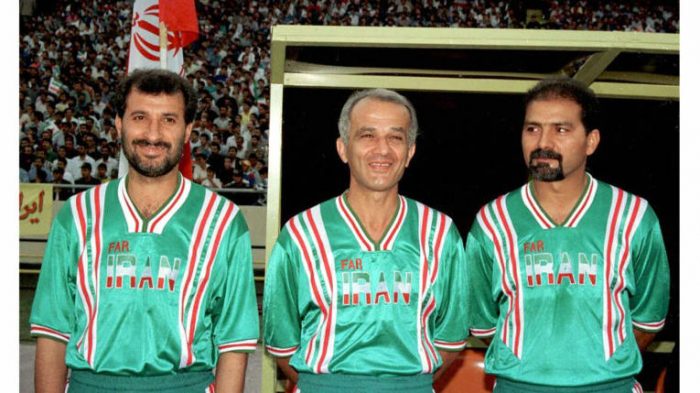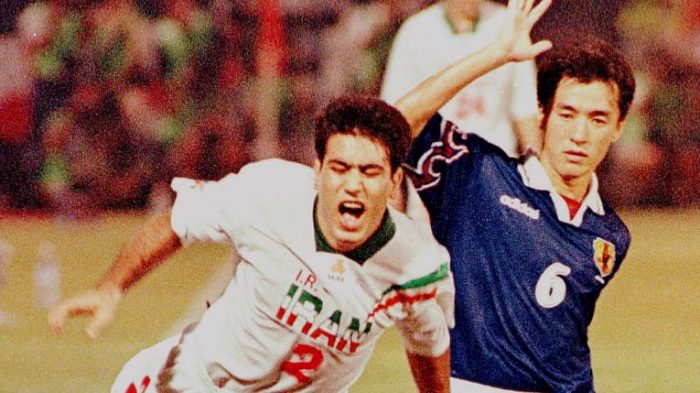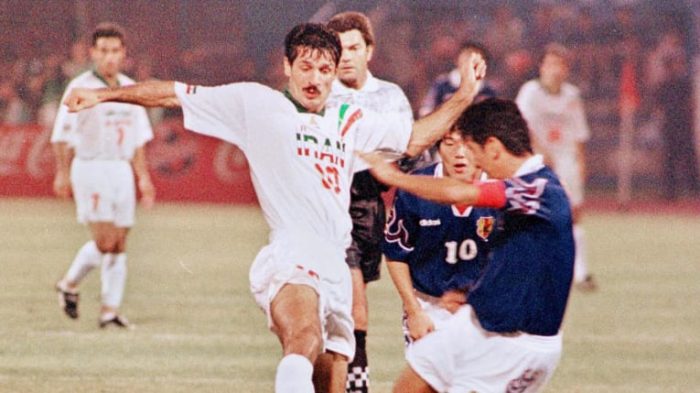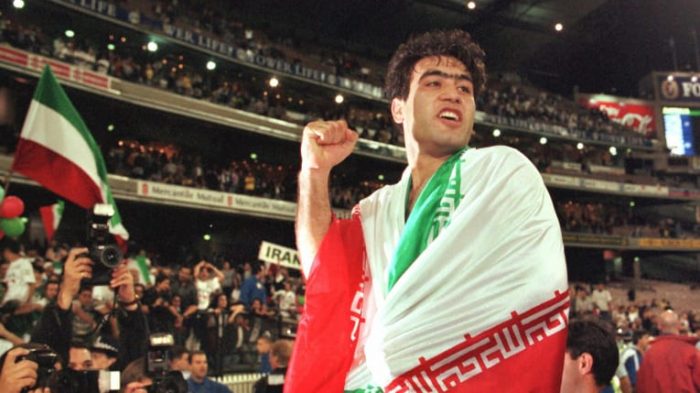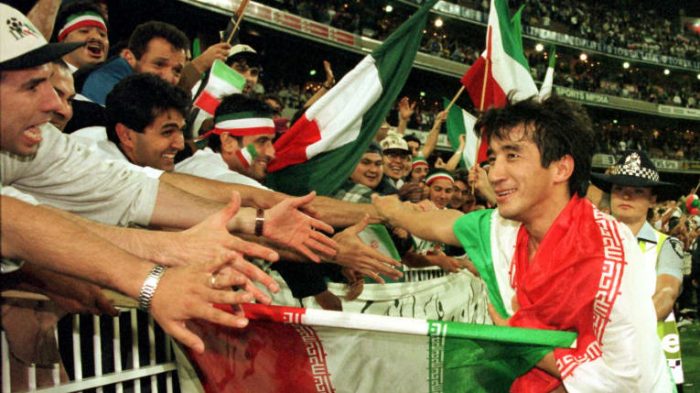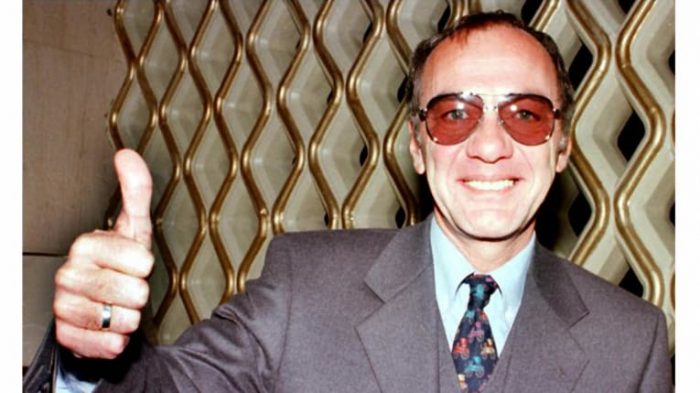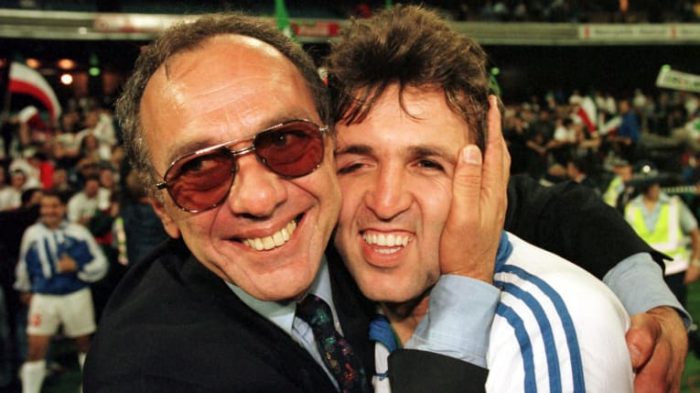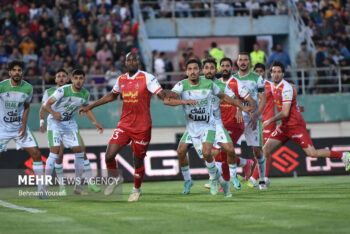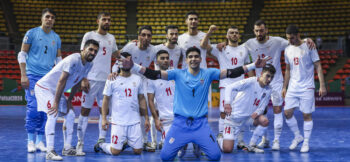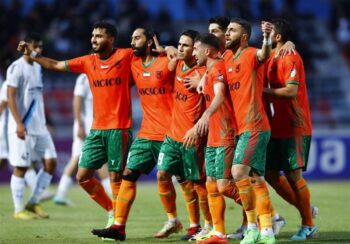Asian Classics: IR Iran vs Australia (1998 FIFA WCQ – VIDEO)
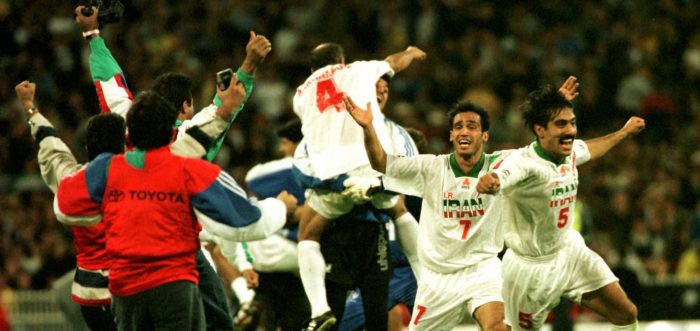
AFC – KUALA LUMPUR, In late 1997, Valdeir ‘Badu’ Vieira took charge of the Islamic Republic of Iran for just three games and by the end of the Brazilian’s brief tenure, millions of fans had poured onto the streets of Tehran to celebrate Team Melli securing a place at their first FIFA World Cup Finals in 20 years.
The focal point of Iran’s qualification for France 98 has often been the climax against Australia at the Melbourne Cricket Ground and the 2-2 draw that broke Australian hearts, when goals from Karim Bagheri and Khodadad Azizi earned the Iranians a 3-3 aggregate tie and a ticket for the FIFA World Cup on the away goals rule.
But a little less than three weeks earlier the former Costa Rica coach jumped aboard the Team Melli rollercoaster for a ride he and football fans around Asia would never forget.
It was Qatar’s Mohammed Salem Al Enazi who, on a balmy early November evening at Doha’s Jassim bin Hamed Stadium, set in train a sequence of events that continue to spark discussion today.
A brace from the striker condemned Iran to a 2-0 defeat in their final FIFA World Cup Qualifiers group match, extinguishing the country’s hopes of an automatic berth at the 1998 Finals and sounding the end for the uneven reign of coach Mohammad Mayeli Kohan.
It was a significant fall from grace for Mayeli Kohan who, less than a year before, had led his homeland to third place at the AFC Asian Cup in the United Arab Emirates, but the reaction to the loss in Doha spoke of the ambition to reestablish the country among Asia’s elite.
Missing out on the AFC Asian Cup title had been seen as a failure for a team featuring once-in-a-generation talents like Ali Daei, Khodadad Azizi and Karim Bagheri, and the powers-that-be were motivated to avoid a similar fate in World Cup qualifying.
Doubts had grown over the future of Mayeli Kohan and the studious Badu Vieira (pictured above) quietly emerged as Iran’s back stop. Ostensibly hired to take charge of the country’s Olympic team, the veteran stepped up as Mayeli Kohan (pictured below, left) was fired, taking the reins for what would be a remarkable ride.
Having impressed officials during his time with Costa Rica, Badu’s mission was straightforward: guide a gifted but misfiring Iran through a series of play-offs to the Finals of the FIFA World Cup for the first time since their debut appearance, in Argentina in 1978. It was a journey that was to become one of the epic tales of Asian football history.
The Iranians had looked set to secure one of the continent’s two automatic places at the Finals until a late collapse in qualifying saw Team Melli pick up just one point from their last three group games and cede top spot – and a place in France – to Saudi Arabia.
And while their hopes of a FIFA World Cup spot remained alive, an already lengthy road to the Finals grew longer still. The first hurdle was a one-off play-off against Japan, runners-up behind Korea Republic in the second of Asia’s two qualifying groups.
Emotionally frazzled and missing talismanic midfielder Bagheri due to suspension, the Iranians travelled to Johor Bahru in Malaysia to take on Takeshi Okada’s side knowing victory would see their dreams of France come true, while defeat would prolong the agony via a home-and-away clash with Oceania qualification winners Australia.
“Officially I had five days before the match with Japan,” Badu tells the-AFC.com from his home in Germany. “It was always going to be tough because we were going to play the fastest team in the world.
“And they told me, without Karim Bagheri you are only going to have half of the team. I knew that the players thought without Karim they would only be half as good.”
“The preparation was a catastrophe because we had to travel for 32 hours…and we knew Japan had been in Johor Bahru for a week. We also knew watching us would be Terry Venables and Australia to get ready for the next game.
“It was a situation that was not normal. From the moment we got, finally, to Johor Bahru, we had two days to prepare for the match.”
Despite the difficulties, the Iranians took a 2-1 lead early in the second half after Daei cancelled out Masashi Nakayama’s opener before Azizi put his side in front 13 minutes after the restart. However, Shoji Jo’s goal a quarter of an hour from the final whistle took the game into an additional 30 minutes.
The two teams continued to trade blows throughout golden goal extra-time until Ahmadreza Abedzadeh parried Hidetoshi Nakata’s shot from distance and Masayuki Okano stole in to score the winner in the 118th minute of a pulsating clash.
But, rather than be downhearted, the manner of his team’s performance lifted Badu’s hopes. The Iranians had dominated large parts of the game and could have won in both normal time and the additional period before Okano earned the Japanese their first-ever FIFA World Cup berth.
“After all that, I was sure it was going to be very difficult for us not to qualify because I saw this team developing things that – even as an optimist – I did not expect,” says Badu. “And as everyone in the team said, we did this without Karim.”
That dramatic loss meant a two-legged clash with Australia – a squad led by former England coach Venables and featuring top class talent such as Harry Kewell, Mark Viduka, Ned Zelic and Mark Bosnich – over the next two weeks, with the prospect of Bagheri returning to the team for the second meeting in Melbourne.
The first leg was played out at a full-to-capacity Azadi Stadium, where the home fans were left disappointed by a 1-1 draw – Azizi equalised following Kewell’s early opener – after Team Melli had dominated the first 90 minutes.
“We could have won the match in Iran,” says Badu. “We made the game in Tehran, but we did not score the goals.”
And so, on to the long trek to Melbourne for the fateful clash on November 27 and both nations’ final chance to qualify for France 98. A packed out MCG awaited, with 98,000 fans in attendance and the vast majority ready – they presumed – to cheer the Socceroos to their first FIFA World Cup appearance since 1974.
“The night we went to see the stadium, 24 hours before the match, we went there and the moment my players saw the ground I saw in their eyes the joy to be able to play football there,” says Badu.
“I saw this and I didn’t let the players have the balls to train, I waited and let them first enjoy the ground.”
Perhaps the Iranian players were a little too impressed by their surroundings because throughout the opening 45 minutes, Badu’s team were second best to an Australia side that threatened to be out of sight before the break.
With 32 minutes on the clock the Socceroos took a deserved lead through Kewell, the 19-year-old beating Abedzadeh at his near post with the Iranian defence incapable of clearing Aurelio Vidmar’s in-swinging cross from the left.
Fortunate to only be one down, Iran went further behind three minutes into the second half. Vidmar made up for his first half misses when he pounced at close range having seen Craig Foster’s header come back off the crossbar. Australia looked destined to qualify for the World Cup, but Badu refused to panic.
“At halftime I had my time with the players and I said to them: ‘You all said to me here, on this ground, you were going to play the match of your lives. I can understand that Australia were not letting us play because they are running a lot, but when we have the ball we can play our football.
“‘This is a ground where you want to play football. We are going to have the ball, we have to play. Keep the ball, you don’t have to run and enjoy it.’ I believe that might have helped.
“But my finest moment was to see Australia go to 2-0, because at 2-0 we had nothing to lose now.”
With 20 minutes remaining, the Brazilian introduced winger Ebrahim Tahami, a player Venables had aired his concerns over following the first leg in Tehran and, within five minutes of his introduction, the Iranians had halved the deficit.
Bagheri, restored to the midfield after his suspension but not at his influential best, side-footed the ball into the empty net after Azizi’s driving run into the penalty area caused panic amongst the Australians. Iran were back in the game, now needing to score just once to advance on the away goals rule.
Three minutes later, the MCG was stunned, silence sweeping around the cavernous oval stadium save for the small band of Iranian fans gathered behind Bosnich’s goal.
The Aston Villa goalkeeper’s punt forward had found its way back into the Australian half and in a flash Daei threaded a perfect pass into Azizi’s path, leaving the reigning Asian Player of the Year to use a solitary touch to steer the ball low into the bottom corner, beyond the advancing Bosnich.
“When I saw this, the execution from Ali Daei and the touch from Khodadad Azizi I thought we were going to win this game 3- or 4-2 because I saw us at the top of the mountain,” says Badu.
“If up to that moment Australia were running like crazy, by this result they can’t do anything else but try to run more. And when you run too much you forget the ball, this is the problem with European-style football.”
After all the drama, the Iranians held on and, as Hungarian referee Sandor Puhl blew for full time, the celebrations started in Melbourne and back in Tehran, where millions poured onto the streets in scenes not witnessed since the Islamic Revolution.
At the MCG, the Iranian players streamed towards the small band of fans in jubilation as various Socceroos collapsed – disbelieving and distraught – on the turf.
“In front of me two of the Australia players had fallen down to the floor and started crying, so my first reaction was human,” says Badu. “I went to one and the next one and I tried to give them the words you think you have to say. I completely forgot to celebrate.
“When I lifted my head all the players were running outside the field to where the supporters were behind the goal. It took a few minutes before I saw any of our players. It took me some minutes to really realise what had happened.”
After a celebratory dinner, Badu and his players returned to Iran, where tens of thousands descended upon the Azadi Stadium as the team landed on the pitch in a military helicopter to a rapturous welcome.
“I lost my glasses because people wanted a souvenir,” says Badu. “It was unbelievable, but beautiful. People were very grateful and there were a lot of positive feelings.”
The joy for the Brazilian was to be shortlived, however. Rather than leading the Iranians to the Finals of the FIFA World Cup in mid-June, Badu’s contract was terminated six months before the tournament in France as first Tomislav Ivic and then Jalal Talebi took the reins of Team Melli. Almost 23 years later, though, he remains happy to have played a part.
“In my eyes, the World Cup was that day in Melbourne,” he says. “That day you had everybody happy and that is what counts. What I’m happy about is that the goals that we scored – and it was the same against Japan – they were academic examples because you can show people that this is how you set somebody free, this is how you score. They were perfect.”
The perfect opportunity to show Iranian football what it was missing presented itself a little more than a year later in the group phase of the 1998 Asian Games in Bangkok.
Now in charge of Oman, Badu masterminded a stunning 4-2 win over a star-studded side that boasted Daei and Vahid Hashemian among others, and which would go on to win the gold medal later in the tournament.
“I’m sure Iran didn’t take us too seriously, I believe, because Iran in Thailand played with their best team,” he says. “They won the gold medal. It happened that day that we had an almost perfect game and Iran seemed not to take it too seriously.
“I wasn’t surprised how good we were. The next day the newspapers were talking about revenge but that was not the case.
“When I’ve been to Iran since, people young and old, ladies and boys treat me with the same cordiality, so I must have left a good image. When you have good intentions people understand you, you don’t have to explain too much. So I’m happy I had this journey.”



